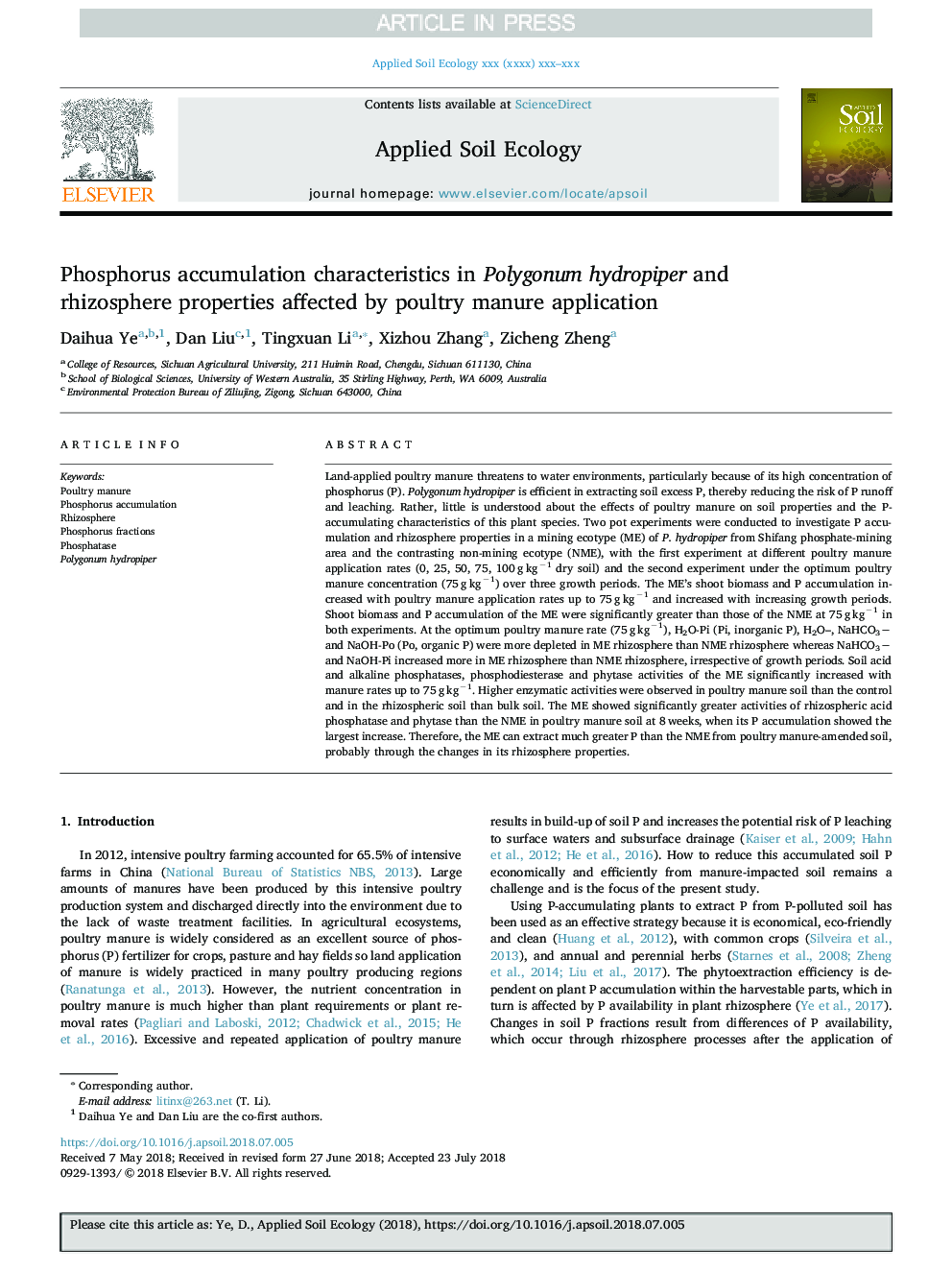| Article ID | Journal | Published Year | Pages | File Type |
|---|---|---|---|---|
| 10223319 | Applied Soil Ecology | 2018 | 10 Pages |
Abstract
Land-applied poultry manure threatens to water environments, particularly because of its high concentration of phosphorus (P). Polygonum hydropiper is efficient in extracting soil excess P, thereby reducing the risk of P runoff and leaching. Rather, little is understood about the effects of poultry manure on soil properties and the P-accumulating characteristics of this plant species. Two pot experiments were conducted to investigate P accumulation and rhizosphere properties in a mining ecotype (ME) of P. hydropiper from Shifang phosphate-mining area and the contrasting non-mining ecotype (NME), with the first experiment at different poultry manure application rates (0, 25, 50, 75, 100â¯gâ¯kgâ1 dry soil) and the second experiment under the optimum poultry manure concentration (75â¯gâ¯kgâ1) over three growth periods. The ME's shoot biomass and P accumulation increased with poultry manure application rates up to 75â¯gâ¯kgâ1 and increased with increasing growth periods. Shoot biomass and P accumulation of the ME were significantly greater than those of the NME at 75â¯gâ¯kgâ1 in both experiments. At the optimum poultry manure rate (75â¯gâ¯kgâ1), H2O-Pi (Pi, inorganic P), H2O-, NaHCO3â and NaOH-Po (Po, organic P) were more depleted in ME rhizosphere than NME rhizosphere whereas NaHCO3â and NaOH-Pi increased more in ME rhizosphere than NME rhizosphere, irrespective of growth periods. Soil acid and alkaline phosphatases, phosphodiesterase and phytase activities of the ME significantly increased with manure rates up to 75â¯gâ¯kgâ1. Higher enzymatic activities were observed in poultry manure soil than the control and in the rhizospheric soil than bulk soil. The ME showed significantly greater activities of rhizospheric acid phosphatase and phytase than the NME in poultry manure soil at 8â¯weeks, when its P accumulation showed the largest increase. Therefore, the ME can extract much greater P than the NME from poultry manure-amended soil, probably through the changes in its rhizosphere properties.
Keywords
Related Topics
Life Sciences
Agricultural and Biological Sciences
Ecology, Evolution, Behavior and Systematics
Authors
Daihua Ye, Dan Liu, Tingxuan Li, Xizhou Zhang, Zicheng Zheng,
